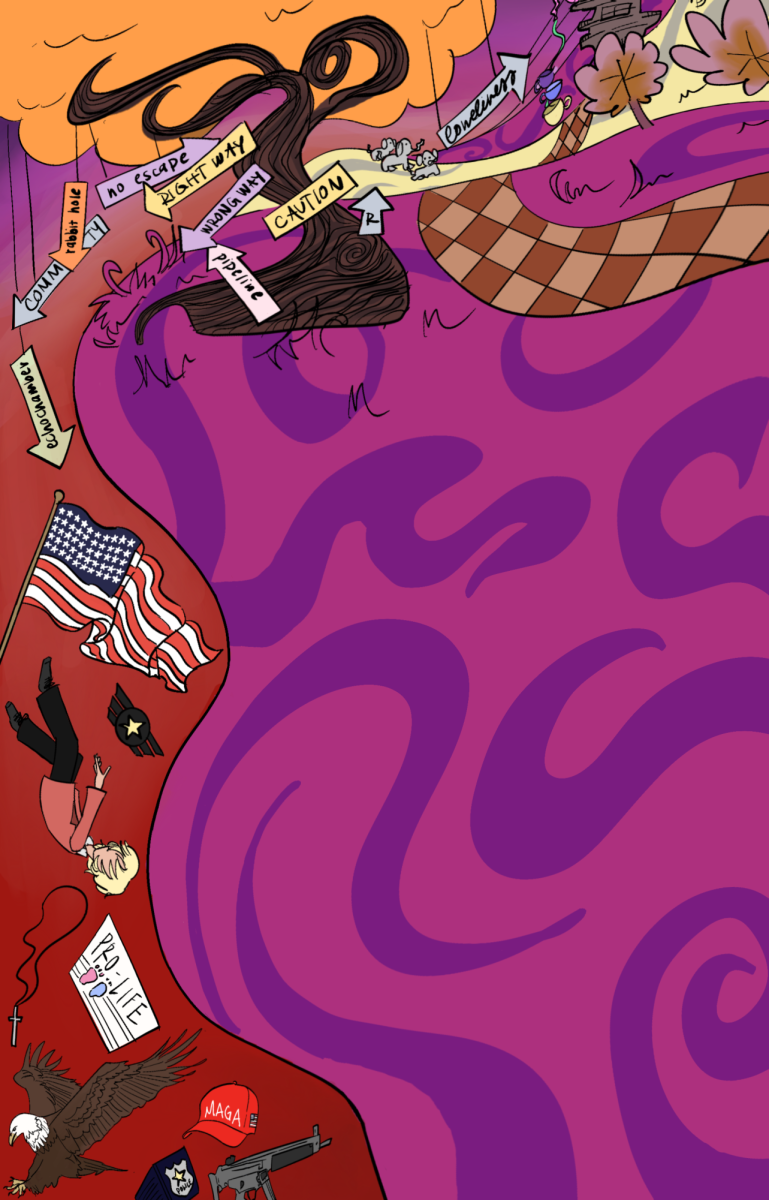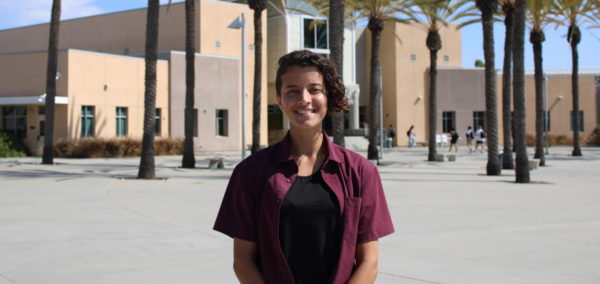Navyaa Sharma (12) is a straight-A student. She has worked a job and completed an internship in her high school career, all while taking 15 AP classes. In her senior year, she dedicated hours of energy and focus to her college applications, on which she was able to present a glowing resumé of academic and extracurricular accomplishments.
However, Sharma’s success did not come without sacrifices. On her journey to achieve so much, she said she found herself feeling very alone.
“In junior year, [the loneliness was] extreme,” Sharma said. “I had six AP classes. I was working 12-hour days in the summer [because of] internships and research, and I didn’t have time for friends. I didn’t even really have time for family, and it definitely felt lonely.”
A Global Problem
Sharma’s experience with loneliness is not uncommon, according to a 2023 advisory by the Surgeon General of the United States, Dr. Vivek Murthy, based on data compiled by organizations including the World Health Organization and the Centers for Disease Control and Prevention. Murthy warned that this “loneliness epidemic” impacts the health and productivity of millions of people in the U.S.
“Loneliness is far more than just a bad feeling — it harms both individual and societal health,” Murthy said in his public advisory. “It is associated with a greater risk of cardiovascular disease, dementia, stroke, depression, anxiety, and premature death. The harmful consequences of a society that lacks social connection can be felt in our schools, workplaces, and civic organizations, where performance, productivity, and engagement are diminished.”
However, further research indicates that the consequences can extend beyond the physical.
Dr. Laura Caloca, a behavioral health psychologist at Neighborhood Healthcare Escondido, has spoken to adolescents and adults alike about mental health and their experiences with loneliness. She said the consequences can go beyond a physical impact and may potentially alter one’s emotional health permanently, especially if experienced as a young adult.
“What I’m seeing is, sometimes, the adolescents that I work with are not getting to live the full experience of a high-schooler,” Caloca said. “[They are] going through the motions of growing up, but what we call emotional intelligence is not developed. So, then it becomes harder for them to connect with their peers. They have lower self-esteem and lower self-confidence. That turns [them] into a person who doesn’t feel like they’re good enough or likable to others.”
Zoe* transferred to Westview from another high school last year and said that until this semester, she has struggled to connect with her peers and make friends. She thought this would be a change from her old school, where she also didn’t interact with many of her classmates.
“I thought that I was doing something wrong, [or] maybe I was just not interesting enough,” she said. “For a long time, I really tried to force it by joining a variety of clubs and really hoping that people would start talking to me. I hoped to have that typical teenage experience– that social life–because in the beginning, I wasn’t able to go to any school events like dances or football games; I didn’t have a friend group to go with and I felt left out.”
Pressure to Excel
Sharma said she had been forced to sacrifice time with friends and family, as well as moments of relaxation, to keep up with her rigorous schedule.
However, according to Caloca, prioritizing academic and work-related goals at the expense of social life can prove to be detrimental.
“A lot of the research out there points to the direction [that] it’s really more important [to live] in the now and [find] ways to pursue your interests without shutting out other areas of your life that aren’t as important to you,” Caloca said. “Some people prefer not to have a lot of friends or to socialize, but if they’re just shutting down that part of their lives because they think it’ll be worth it in the long run, it’s almost like they’re holding on to something that they can’t guarantee.”
Some students, like Sharma, feel overworked and pressured academically, giving them less time to forge those connections with friends and family. While some of that pressure may come from within as a result of comparison to fellow students, it also often comes from external forces, such as families.
Sally’s* parents moved to America from a foreign country. She said she sometimes feels too busy to experience her life to the fullest — partially because of the expectations set by her parents and her academically successful siblings.
“[My parents’ hometown] was just a little town, and they went through their primary school and then they immigrated here because they realized that there would be more opportunities for my siblings and me in America,” Sally said. “[It was] so their children could have a better life and a better education than they did in that little town. So, now, I’m just like, ‘They gave me all of this, and I get to live in this amazing place, so now I’ve got to own up to it.’”
Over time, Sally said these external pressures contributed to a lack of engagement and motivation to seek out social connections. Instead, she turned to social media to find fulfillment and found it easier to stay inside.
“I just stopped trying [socially] a lot of the time,” Sally said. “I [didn’t] want to [put in] all this [effort] just so I could hang out with my friends for an hour at the park. That fed into the loneliness part because it’s more convenient to stay at home than feel like I’m wasting time when I go out, especially when I knew I could have been working or studying.”
An Online Social Life
Social media can have its benefits, allowing people from around the world to meet others and find connections on various platforms. However, according to Caloca, it doesn’t always prove to be an adequate substitute for in-person interactions and physical touch. For example, a lack of oxytocin, a hormone linked with social behavior and bonding, can fuel negative emotions.
“A lot of students that I encounter seem to spend more and more time on their own, interacting with people via social media,” Caloca said. “But, when it comes to emotional support, that seems like an area that’s lacking. So, while they have interactions with others, they don’t necessarily have the ability to talk about how they feel [and] release that oxytocin that comes from getting a warm hug or just spending time with somebody you care about.”
Sharma said her use of social media platforms like Instagram had both positive and negative effects. It allowed her to keep in touch with her friends, but at the same time, it worsened her fear of missing out on social events, furthering her isolation. While she wanted to reach out to join her friends, Sharma said her workload prevented her from doing so, and she had no choice but to watch her friends from behind a screen.
She also said social media was a major distraction from her work, which increased the amount of time it took to complete tasks and took away from the very little free time she had.
“I think social media definitely is a blessing and a curse,” Sharma said. “For me, when I really needed to be focusing on other things, it felt more like a curse and I would opt to be on social media and not actually focus. If I could do things differently, I would [be] more intentional with what I was focusing on. Social media was a big distraction, and I would rather the time I spent on social media have been time spent with the people in my life [instead].”
According to Caloca, social media can be isolating in another way as well because people constantly compare themselves to people’s glamorized lives.
“People [I work with] have been feeling ostracized from their peers because of the pressures of looking a certain way based on what they see on social media, [due to] the culture of who is considered beautiful, and having the ability to purchase expensive items, and being trendy,” Caloca said.
Zoe said her experience with social media made her more reluctant to reach out to new people at Westview, as she often compares herself to the people she sees online.
“I would say social media definitely had an impact [on my self-esteem],” Zoe said. “When certain people take a photo, let’s say holding their camera in front of a mirror, I try to do the exact same thing, and I get really burnt out. I just feel really bad because I’m not able to do it like they are.”
Reconnecting
While forms of loneliness caused by academic stress, social media, or external pressures can be detrimental to one’s health, there are ways to minimize its negative effects and seek help from the community. Caloca said that putting in effort to reach out to friends and family and even just receiving a hug can mitigate the consequences of loneliness, while setting a schedule that includes time for self-care and personal interests is a good strategy to maintain a work-life balance. In addition, there are many helplines and therapy resources available for people of all ages and demographics.
“Don’t be afraid to use those [resources],” Caloca said. “You don’t have to be in crisis to talk to a therapist. Most of the best work done in therapy is with a person who is just working on things so that they get help before it becomes a huge problem.”
In the end, Sharma said she isn’t sure if experiencing this loneliness in exchange for academic success was worth it. She said she believes her future is dependent on college acceptances, and her dream college hasn’t released decisions yet.
“I just dedicated a bunch of my life and these [are] years that I can’t get back,” Sharma said. So, I do hope it will be worth it, but I can’t [be sure].”
Even so, Caloca said she believes that the idea of “worth it” in terms of loneliness isn’t quantifiable and that people should try to create balance in their lives between interpersonal relationships and work commitments. She said that sacrificing social connection for the chance of more success is an attempt to exercise control, but because the future is never guaranteed, it doesn’t always pay off.
“I think, at all stages, human beings have this desire to be able to control what’s going to be in their future,” Caloca said. “It makes them feel more comfortable for some reason or makes them feel better about doing something in the present that they don’t necessarily like doing. But, we can’t predict the future.”
After almost four years of academic pressure, stress, and loneliness, for the final half of her senior year, Sharma has been trying to take more time for herself and her friends. At the end of the college application season, she said she has finally felt more freedom than ever before in high school to focus on being in the moment with the people around her.
“[There is] a huge weight off my back, and my schedule right now is so much easier,” Sharma said. “It’s been really nice. I get to spend my weekends with all of my friends, and I get to go home [without] stress about homework or studying so I can spend time with my family. It’s been really nice to have that freedom because it felt like for the last couple of years, I was so locked away. I have the time now to do the things I wanted to, which I couldn’t before.”
Similarly, over a year after her transfer to Westview, Zoe said she has finally grown comfortable with the people around her and built strong relationships with her friends.
“[My loneliness] definitely improved and I think the main reason why is because I let things occur naturally — finding friends and fitting in with people,” Zoe said. “I focused on myself and what I can do to better myself, whether that be giving my all in classes or other activities. I definitely was able to [successfully find my friend group], but it took me a long time. I was mainly able to do that because I didn’t force it. [Now], this is where I fit. This is where I belong.”
*Names changed








